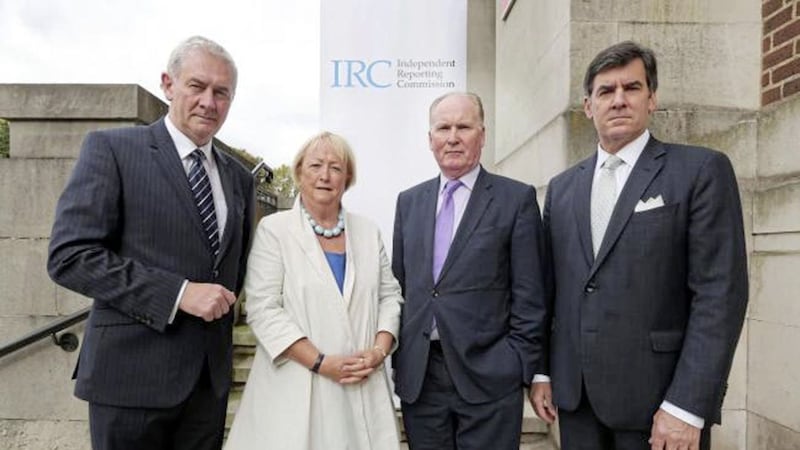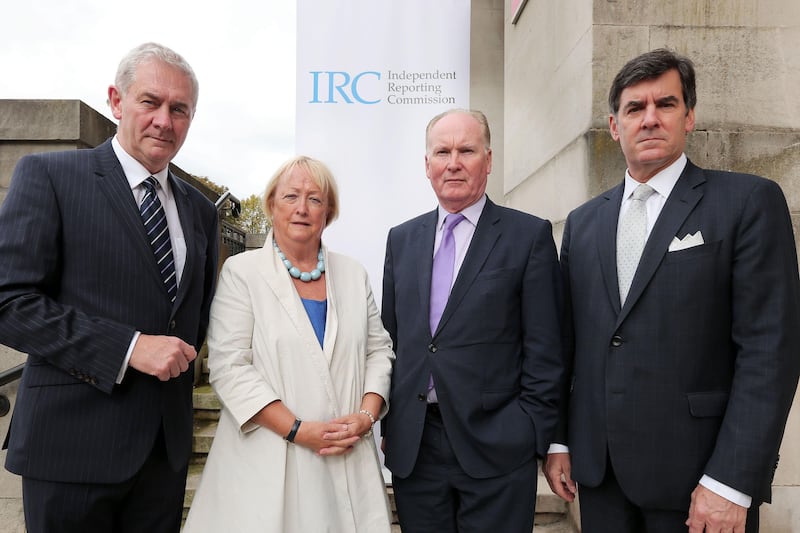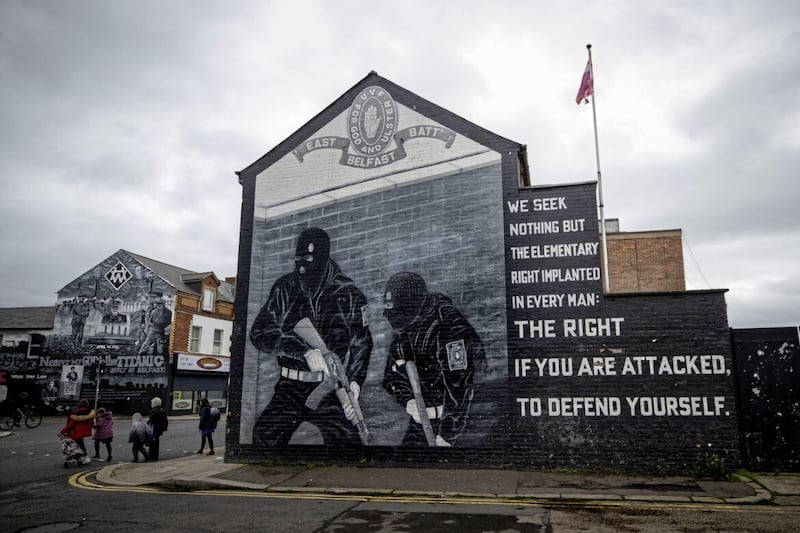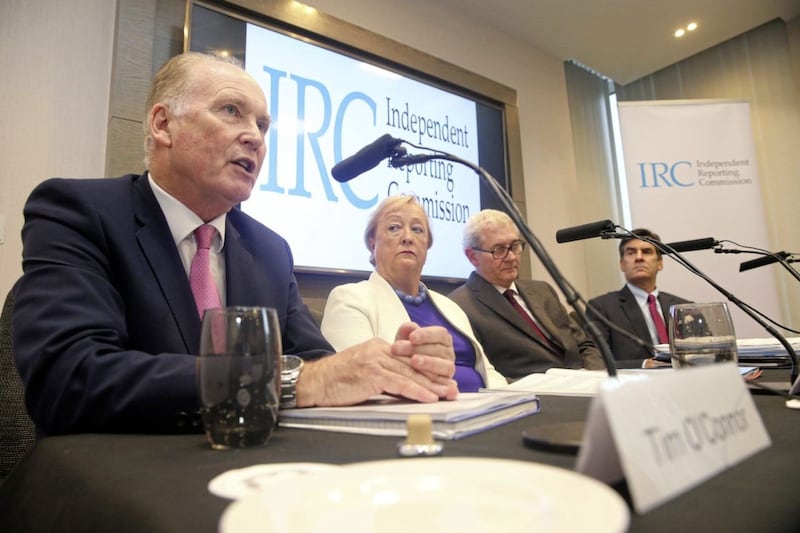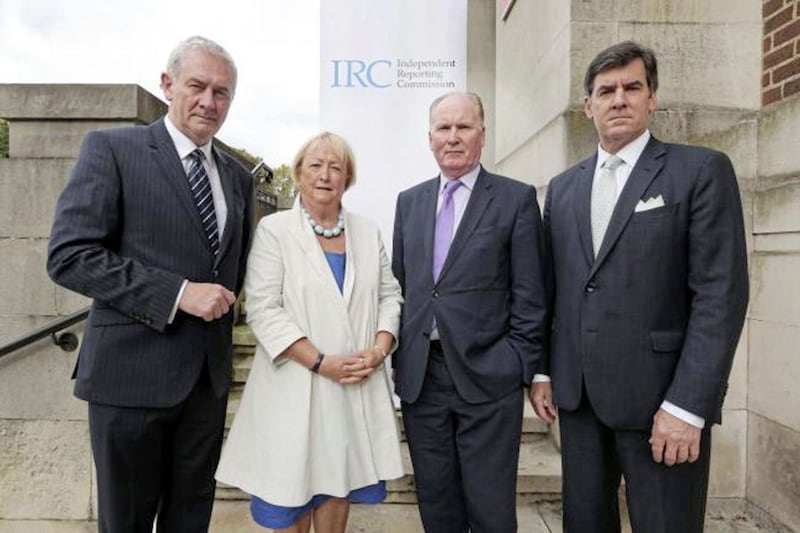A commission set to report on paramilitary transformation has said a new mechanism for further decommissioning should be considered by the British and Irish governments.
In its third progress assessment towards ending paramilitary activity the Independent Reporting Commission, set up after the 2015 Fresh Start Agreement, has made a number of recommendations.
The four person commission is made up of solicitor John McBurney and academic and former politicians Monica McWilliams, Tim O’Connor, who was nominated by the Irish Government, and Mitchell Reiss, nominated by the British government.
The recommendations include speeding up of the judicial process, increased community policing and greater powers of civil recovery to tackle criminality.
Economic deprivation in many working class communities the IRC say "enhances the ability of paramilitaries to operate", including educational under-attainment, unemployment, poverty, mental health issues and drugs.
The organisation does not give an assessment of individual organisations or a breakdown on ceasefire adherence. It looks at a more holistic approach to ending the grip of paramiltarism on communities in Northern Ireland.
They found that paramilitarism remains "a clear and present danger" in the North.
“We regard the continuation of paramilitary activity as unacceptable. In our view, the continuation of paramilitarism 22 years after the Agreement is against the wishes of the people, is without justification and should end," the report said.
The Commissioners welcomed the new phase of the programme approved by the Executive during the summer and the three year extension involved.
It noted that there are still too many communities in Northern Ireland who remain "under the coercive control of paramilitary groups".
They also state that the Executive should consider setting up a dedicated Northern Ireland agency for the civil recovery of the proceeds of crime "to further bolster the fight against organised crime".
Noting that controversial remembrance events were holding back peace the IRC said: "One major issue that surfaced again during the period since our last Report is what we are calling ‘Memorialisation of the Past.’
"There have been several occasions during the year where echoes of the paramilitary past were brought starkly into the present by means of events such as funerals or the public displays at various times of flags and emblems depicting paramilitary figures or events.
"The public commentary and controversy around such actions and occasions have highlighted the deep divides that still exist around narratives of the paramilitary past and what they mean for the present and future.
"As we have seen, these events and incidents have the capacity to damage trust and confidence between communities.
"We appreciate that there are many useful projects and initiatives around commemoration of the past more broadly, but we believe recalling and marking the paramilitary past requires particular approaches and attention".
The reports states that the two governments should consider a mechanism being put in place for a limited period to deal with any future decommissioning of residual weapons or material.
"If there is a need identified for a decommissioning mechanism, both the Government of Ireland and the Government of the UK have advised that they will consult to consider this recommendation" .
In terms of Brexit the report notes that the threat from violent dissident republican groups has a "significant cross-border dimension and we commend the ongoing close co-operation between law enforcement agencies including the PSNI and An Garda Síochána".
"It is essential that comprehensive arrangements are in place to enable the continuation of cross-border police and judicial co-operation after the end of the Brexit transition period".
The report also calls for: "Positive work to enable women’s organisations to enhance their role in helping end paramilitarism as well as encouraging women to take on leadership roles within their local communities".
However, added that they were disappointed at the lack of civil recovery to remove wealth and assets from those involved in criminality.
"The Commissioners reiterate their call on the Executive to consider setting up a dedicated Northern Ireland agency for the civil recovery of the proceeds of crime to further bolster the fight against organised crime", it added.
